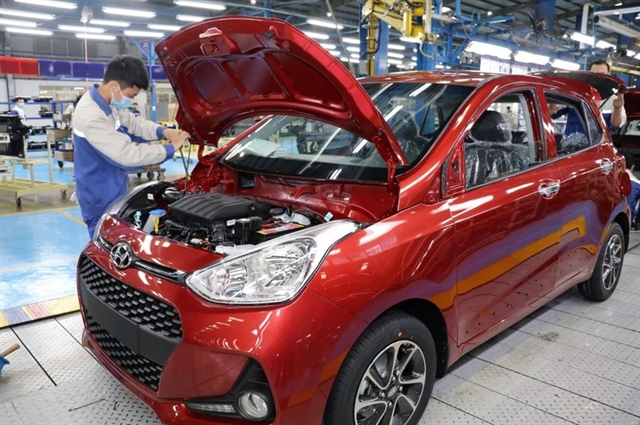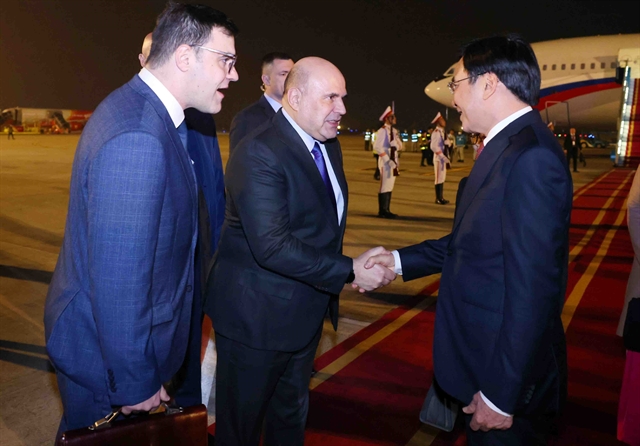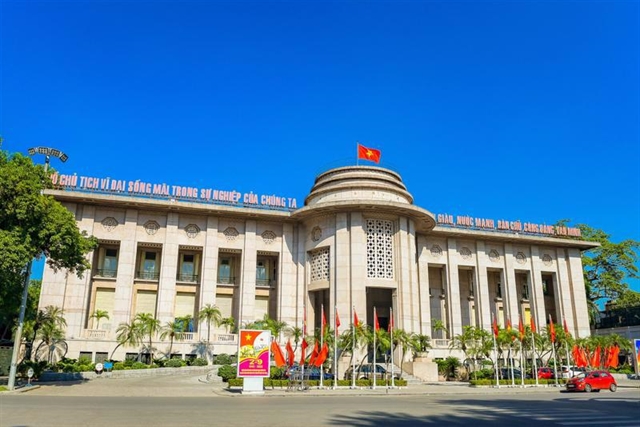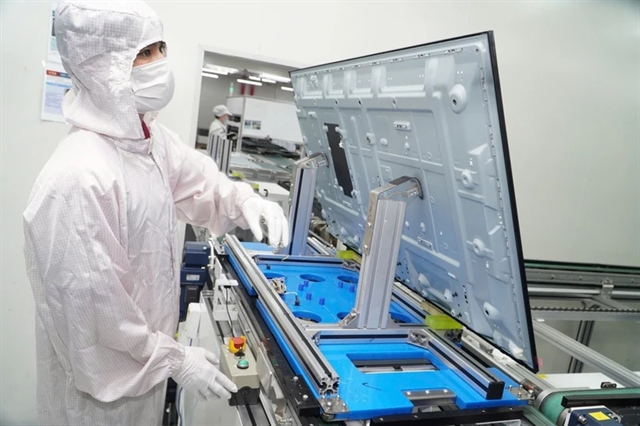 Economy
Economy
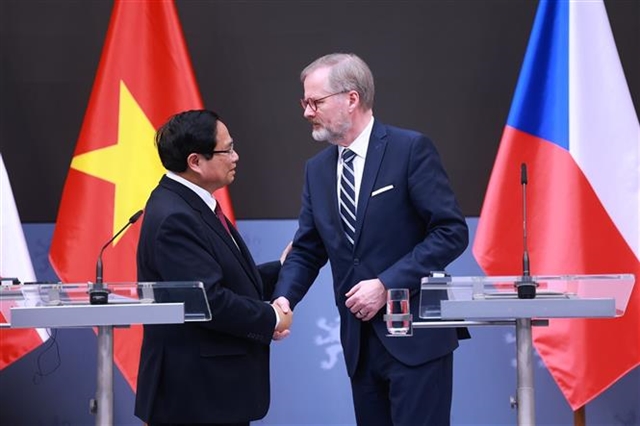
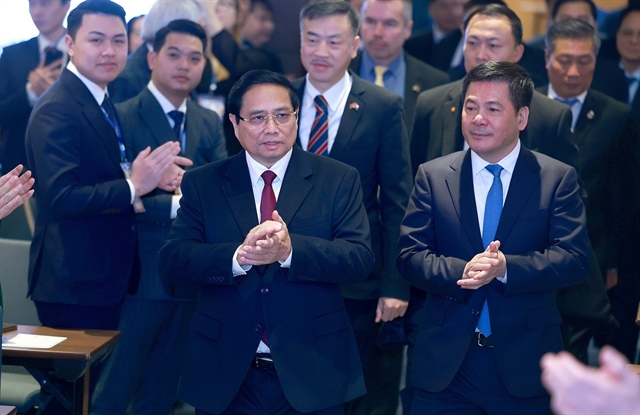 |
| Prime Minister Phạm Minh Chính at the Việt Nam–Czech Republic Business Forum. — VNA/VNS Photo Dương Giang |
PRAGUE — There remains ample room for businesses from Việt Nam and the Czech Republic to speed up bilateral cooperation in the future, said Vietnamese Prime Minister Phạm Minh Chính.
During the Việt Nam–Czech Business Forum in Prague on Monday, PM Chính suggested the two business communities continue diversifying their products and supply chains, especially in emerging industries such as semiconductor chips, big data, internet of things, cloud computing, cyber security, biomedicine and optics.
He also urged the firms to make the most of the EU-Việt Nam Free Trade Agreement and other cooperation mechanisms and contribute to increasing two-way trade turnover to US$5 billion and the Czech investment capital in Việt Nam to $2-3 billion shortly.
The PM also said he hoped that future bilateral investment cooperation between the two countries would see breakthroughs, especially in key areas that both sides are interested in and give priority to such sectors as the automobile industry, fundamental industry, transportation and energy.
Participants at the conference proposed the two governments consider launching direct flights between Việt Nam and the Czech Republic to create more favourable conditions for bilateral trade and tourism ties.
PM Chính said Việt Nam is actively promoting the connection of transport infrastructure with the Czech Republic, including resuming the railway line and promoting direct flights from Việt Nam to the Czech Republic.
He added that Việt Nam has officially unilaterally exempted visas for Czech citizens to enter Việt Nam, initially in 2025.
Bilateral trade has increased very quickly, doubling after five years, reaching $2.9 billion in 2023 and $3.8 billion last year, of which Việt Nam exported $3.3 billion worth of products to the Czech Republic. The Czech Republic is the first country in the EU to ratify the EU-Việt Nam Investment Protection Agreement (EVIPA).
The Czech Republic is running 41 direct investment projects in Việt Nam, with a total registered capital of $92.39 million. The two sides still have significant potential and room to expand cooperation into such areas as green transformation, digital transformation, renewable energy, and mining.
These figures, however, have failed to match potentials, strength and competitive advantages of each country, participants at the conference said.
Earlier here on Sunday, PM Chính met leading corporations of the country and Europe.
In his meeting with Klaus Zellmer, chairman of the Board of Management of Skoda Auto, the biggest automobile manufacturer in the Czech Republic, Prime Minister Chính lauded Skoda's decision to partner with Thành Công Group of Việt Nam.
He encouraged Skoda to invest on a large scale, focusing on high-tech products, technology transfer and localisation. Beyond vehicle production, he expected that Skoda would also consider expanding its operations into areas, where its excels and Việt Nam had a demand.
Zellmer, for his part, highlighted Việt Nam's strategic importance as a gateway to the ASEAN market, and a reliable partner.
In another working session with Pavel Tykac, the owner of Seven Global Investments and SK Slavia Praha Football Club, PM Chính suggested that, with its capabilities and strengths, the company should expand its investments in Việt Nam into areas, such as batteries, clean energy like wind and solar power, sports and culture, particularly football.
Pavel Tykac said, with roughly three billion euros in equity value, and investments in the Mông Dương 2 BOT thermal power plant in Việt Nam, Seven Global Investments wants Vietnamese authorities, to expedite the approval process for acquiring a controlling stake in the power plant. — VNS





